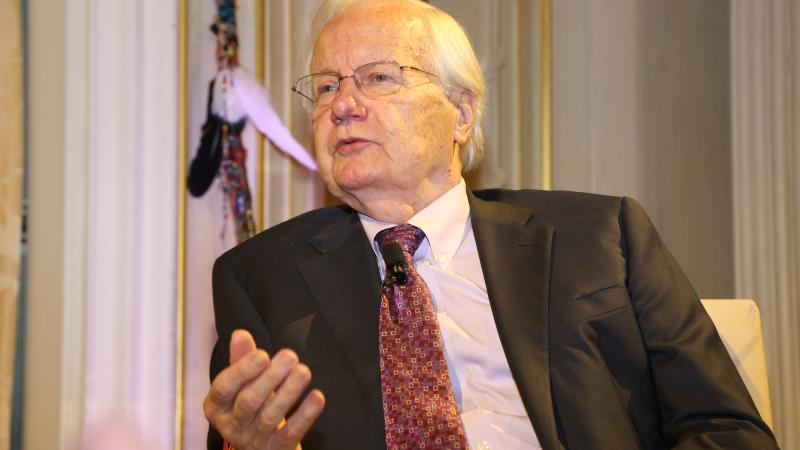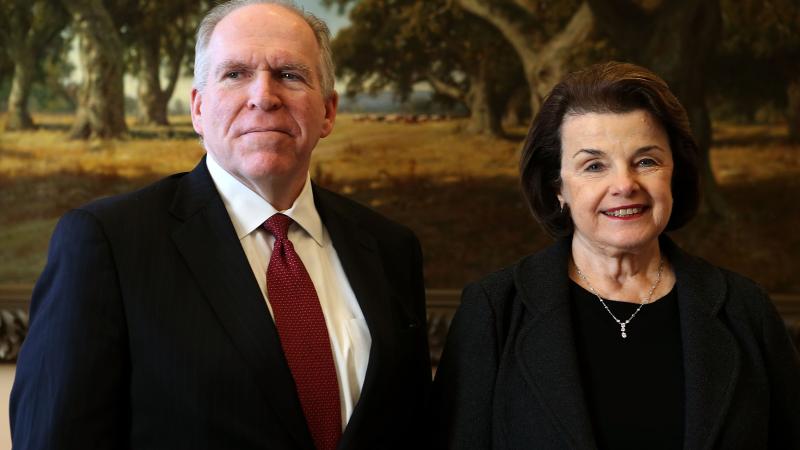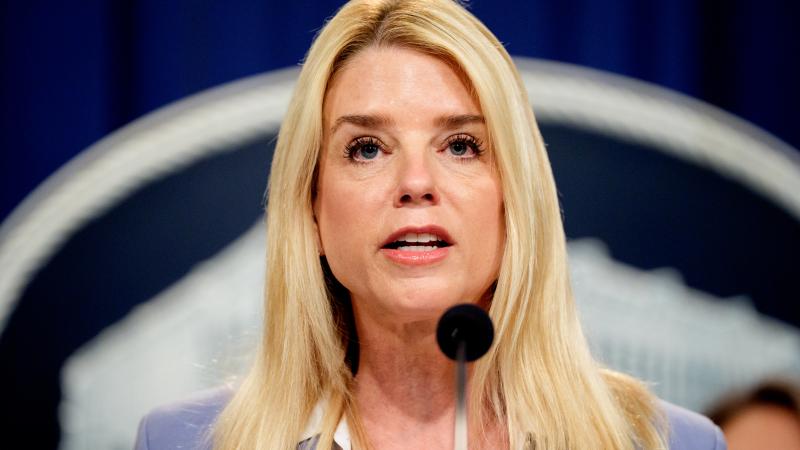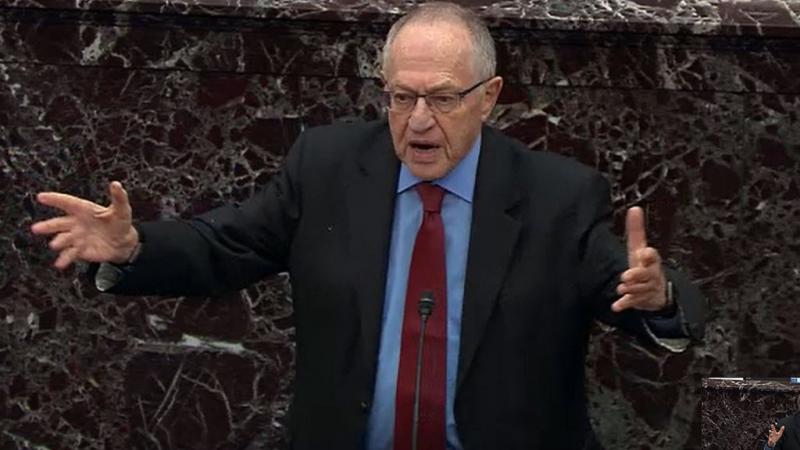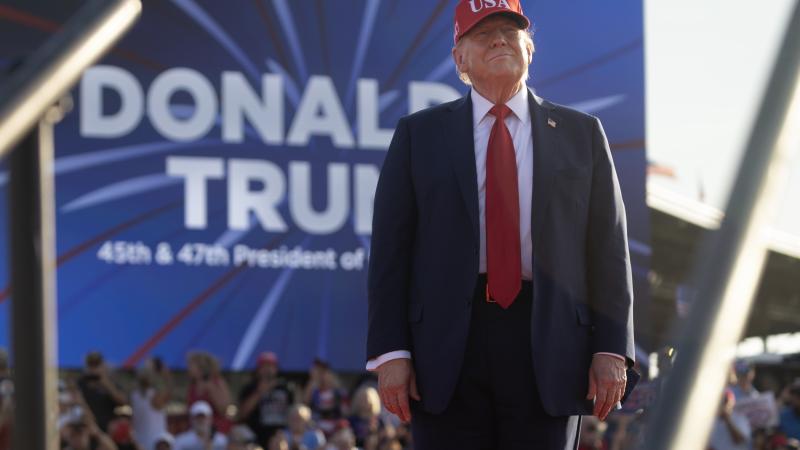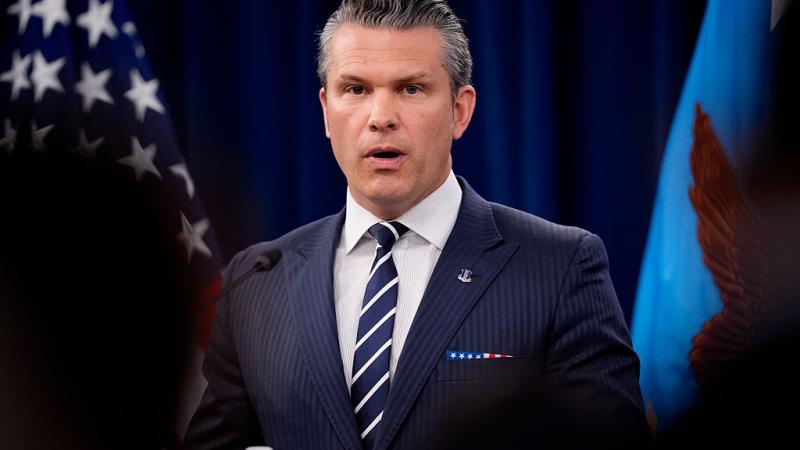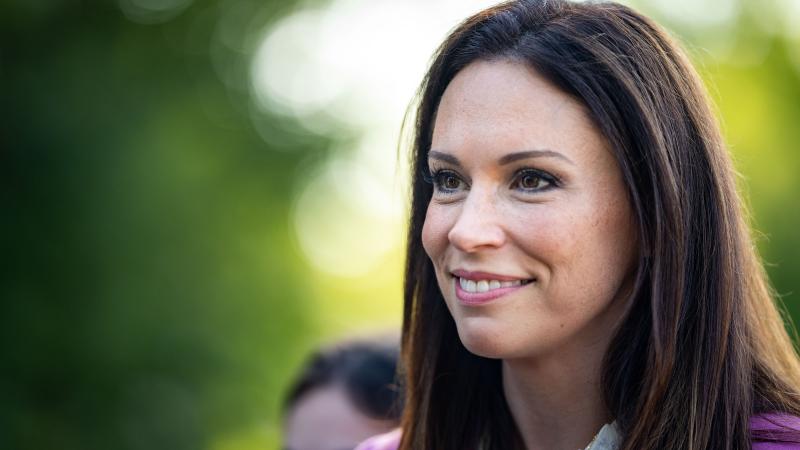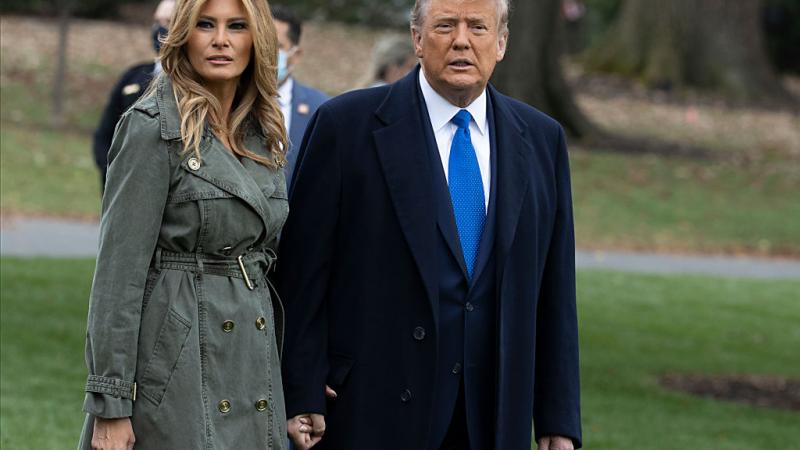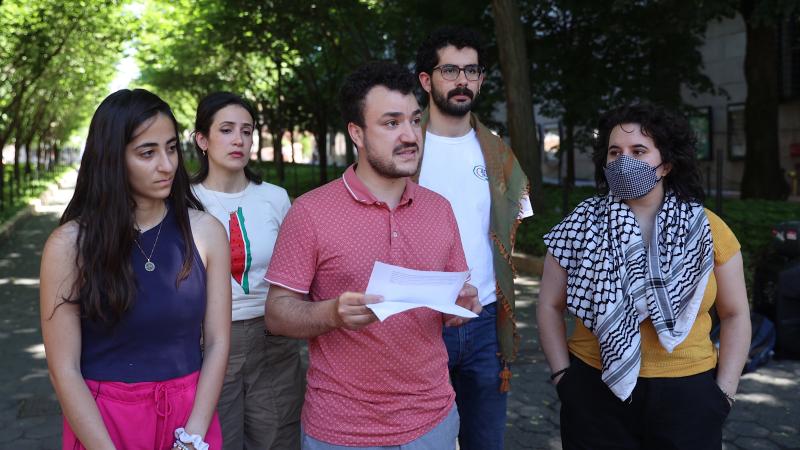Making of a myth: Timeline of media's role in selling 'Trump-Russia collusion' tale
Four years of leaks, misinformation, and manipulation in the construction of a conspiracy theory.
When it comes to misinformation, disinformation and the now-disproven Trump-Russia collusion conspiracy theory, it would not have been possible without a strong dose of media support.
Here is a timeline that breaks out some important reports by — and leaks to — the news media.
March 25, 2016:
Ukrainian-American operative for the Democratic National Committee (DNC) Alexandra Chalupa meets with top Ukrainian officials at Ukrainian Embassy in Washington D.C. to "expose ties between Trump, top campaign aide Paul Manafort and Russia," according to Politico. Ukrainian embassy proceeds to work "directly with reporters researching Trump, Manafort and Russia to point them in the right directions," according to an embassy official (though other officials later deny engaging in election-related activities).
March 30, 2016:
Chalupa briefs DNC staff on Russia ties to Manafort and Trump. Ukrainian embassy officials and Chalupa "coordinat[e] an investigation with the Hillary team" into Manafort, according to a source in Politico. This effort reportedly includes working with U.S. media.
April 2016:
Ukrainian member of parliament Olga Bielkova reportedly seeks meetings with five dozen members of U.S. Congress and reporters including former New York Times reporter Judy Miller, David Sanger of New York Times, David Ignatius of Washington Post, and Washington Post editorial page editor Fred Hiatt.
Week of April 6, 2016:
Chalupa begins working with investigative reporter Michael Isikoff, according to her later account.
April 26, 2016:
Isikoff publishes story on Yahoo News about Manafort's business dealings with a Russian oligarch.
April 27, 2016:
The BBC publishes an article titled, “Why Russians Love Donald Trump.”
April 28, 2016:
Chalupa is invited to discuss her research about Manafort with 68 investigative journalists from Ukraine at Library of Congress for Open World Leadership Center, a U.S. congressional agency. Chalupa invites Isikoff to "connect(s) him to the Ukrainians.” After the event, Isikoff accompanies Chalupa to Ukrainian embassy reception.
May 3, 2016:
Chalupa emails DNC that she'll share sensitive info about Paul Manafort "offline" including "a big Trump component that will hit in next few weeks.”
May 4, 2016:
Trump locks up Republican nomination.
June 7, 2016:
Hillary Clinton locks up Democratic nomination.
June 17, 2016:
Washington Post publishes front page story linking Trump to Russia: "Inside Trump's Financial Ties to Russia and His Unusual Flattery of Vladimir Putin.”
July 2016:
Ukraine minister of internal affairs Arsen Avakov attacks Trump and Trump campaign adviser Paul Manafort on Twitter and Facebook, calling Trump "an even bigger danger to the US than terrorism.”
Former Ukrainian Prime Minister Arseny Yatseniuk writes on Facebook that Trump has "challenged the very values of the free world."
Late July 2016:
Chalupa leaves the (DNC) to work full-time on her research into Manafort, Trump and Russia; and provides off-the-record guidance to "a lot of journalists.”
Aug. 4, 2016:
Ukrainian ambassador to U.S. writes op-ed against Trump.
Aug. 14, 2016:
New York Times breaks story about cash payments made a decade ago to Paul Manafort by pro-Russia interests in Ukraine. The ledger was released and publicized by the National Anti-Corruption Bureau of Ukraine.
Aug. 15, 2016:
CNN reports the FBI is conducting an inquiry into Manafort's payments from pro-Russia interests in Ukraine in 2007 and 2009.
After a meeting discussing the election in FBI Deputy Director Andrew McCabe's office, FBI counterintelligence agent Peter Strzok texts FBI attorney Lisa Page referring to the possibility of Trump getting elected. "We can't take that risk," he writes. They speak of needing an "insurance policy.”
Aug. 19, 2016:
Paul Manafort resigns as Trump campaign chairman.
Ukrainian parliament member Sergii Leshchenko holds news conference to draw attention to Paul Manafort and Trump's "pro-Russia" ties.
Sept. 2, 2016:
FBI officials Lisa Page and Peter Strzok text that "[President Obama] wants to know everything we're doing.”
Sept. 23, 2016:
Yahoo News publishes article by Isikoff about Carter Page's July 2016 trip to Moscow. (The article is apparently based on leaked info from Fusion GPS Steele anti-Trump "dossier" political opposition research.)
End of September 2016:
Fusion GPS' Glenn Simpson and former British spy Christopher Steele meet with reporters, including New York Times, Washington Post, Yahoo News, the New Yorker and CNN or ABC. One meeting is at office of Democratic National Committee general counsel.
Sept. 23, 2016:
Michael Isikoff and Yahoo News report “U.S. intel officials probe ties between Trump adviser [Carter Page] and Kremlin.” It is later revealed that the FBI improperly wiretapped Page for a year.
Early October 2016:
Steele, the author of anti-Trump "dossier," meets in New York with David Corn, Washington bureau chief of Mother Jones.
Oct. 14, 2016:
At the FBI, Strzok emails Page, discussing talking points to convince Deputy Director McCabe to persuade a high-ranking Department of Justice official to sign a warrant to wiretap Page. "At a minimum, that keeps the hurry the F up pressure on him," Strzok emails Page less than four weeks before Election Day.
Mid-Oct. 2016:
Steele again briefs reporters about Trump political opposition research. The reporters are from the New York Times, the Washington Post, and Yahoo News.
Oct. 24, 2016:
Benjamin Wittes, confidant of FBI Director James Comey and editor-in-chief of the blog Lawfare, writes of the need for an "insurance policy" in case Trump wins. It's the same phrase FBI officials Page and Strzok used when discussing the possibility of a Trump win.
Late Oct. 2016:
Steele again briefs reporter from Mother Jones by Skype about Trump political opposition research.
Oct. 30, 2016:
Mother Jones writer Corn is first to report on the anti-Trump "dossier," quoting unidentified former spy, presumed to be Steele. FBI General Counsel James Baker had reportedly been in touch with Corn, but Corn later denies Baker provided him information.
Oct. 31, 2016:
New York Times reports FBI is investigating Trump and found no illicit connections to Russia.
Nov. 1, 2016:
FBI concludes Christoher Steele, who compiled anti-Trump "dossier" using Russian sources, leaked to press and is not suitable for use as a confidential human source. However, Steele continues to "help," according to Jan. 31, 2017 texts to Justice Department official Bruce Ohr.
Nov. 3, 2016:
Page texts Strzok about her concerns that Clinton might lose and Trump would become president: "The [New York Times] probability numbers are dropping every day. I'm scared for our organization.”
Nov. 8, 2016:
Trump is elected president.
Nov. 18, 2016:
Trump announces Lt. Gen. Michael Flynn as his choice for National Security Adviser. Over the next few weeks, Flynn communicates with numerous international leaders.
Nov. 30 - Dec. 28, 2016:
Two dozen Obama administration officials make requests to unmask the name of National Security Adviser designee Flynn, who was "incidentally" captured by intel surveillance. The officials include: U.N. Ambassador Samantha Power, Director of National Intelligence James Clapper, and CIA Director John Brennan.
Jan. 5, 2017:
Obama chief of staff Denis McDonough requests Flynn unmasking.
Intelligence Community leadership, including FBI Director James Comey, Deputy Attorney General Sally Yates, CIA Director Brennan and Director of National Intelligence Clapper, provides classified briefing to President Obama, Vice President Joe Biden, and National Security Adviser Susan Rice on alleged Russia hacking during 2016 campaign, according to notes later written by Rice.
After briefing, according to Rice’s notes, President Obama convenes Oval Office meeting with her, Comey, Biden, and Yates. The "Steele dossier" is reportedly discussed. Also reportedly discussed: Flynn's intercepted talks with Russia's ambassador.
Jan. 6, 2017:
Comey and other intelligence leaders meet with President-elect Trump and his national security team at Trump Tower in New York to brief them on alleged Russian efforts to interfere in the election.
Later, Rice would write herself an email stating that Obama suggested they hold back on providing Trump officials with certain info for national security reasons.
After Trump team briefing, Comey meets alone with Trump to "brief him" on Fusion GPS/Steele allegations "to alert the incoming President to the existence of this material," even though it was, as he later put it, “salacious and unverified.” Comey later says Clapper asked him (Comey) to do the briefing personally.
Jan. 7, 2017:
Clapper and two other Obama administration officials request Flynn unmasking.
January 2017:
The FBI interviews a main source of Steele's "dossier" and learns his information was merely barroom gossip and rumor never meant to be taken as fact or submitted to the FBI and the Foreign Intelligence Surveillance Court to wiretap Page. (The FBI does not notify the court and applies for, and receives, another wiretap against Page).
Jan. 10, 2017:
The 35-page Fusion GPS anti-Trump "dossier" is leaked to the media and published.
A CIA official makes a Flynn unmasking request.
Jan. 11, 2017:
Power makes another Flynn unmasking request.
Jan. 12, 2017:
Obama administration finalizes new rules allowing NSA to spread "certain intel to" other U.S. intel agencies without normal privacy protections.
Vice President Biden and Treasury Secretary Jacob Lew request the unmasking of Flynn in intelligence communications.
Someone leaks to David Ignatius of the Washington Post that Flynn had called Russia's ambassador. “What did Flynn say, and did it undercut the US sanctions?” asked Ignatius in the article.
Jan. 20, 2017:
Trump becomes president.
Fifteen minutes after Trump becomes president, former National Security Adviser Susan Rice emails memo to herself purporting to summarize the Jan. 5 Oval Office meeting with President Obama and other top officials. She states that Obama instructed the group to investigate "by the book" and asked them to be mindful whether there were certain things that "could not be fully shared with the incoming administration.”
Jan. 22, 2017:
Intel information is leaked to Wall Street Journal, which reports "US counterintelligence agents have investigated communications" between Flynn and Russian Ambassador to the U.S. Sergey Kislyak to determine if any laws were violated.
Jan. 23, 2017:
Leak to Washington Post falsely claims Flynn is not the subject of an investigation.
Jan. 24, 2017:
McCabe sends two FBI agents, including Strzok, to the White House to question Flynn. FBI Director Comey later takes credit for "sending a couple of guys" to interview Flynn, circumventing normal processes.
Notes kept hidden until May 2020 show FBI officials discussing whether the goal of the meeting with Flynn was to "get him to lie" so that he would be fired or prosecuted.
Feb. 9, 2017:
News of FBI wiretaps capturing Trump national security adviser Flynn speaking with Russia's ambassador is leaked to the press. New York Times and Washington Post report Flynn discussed U.S. sanctions, despite his earlier denials. The Post also reports the FBI "found nothing illicit" in the talks. The Post headline in an article by Greg Miller, Adam Entous and Ellen Nakashima reads, “National Security Adviser Flynn Discussed Sanctions with Russian Ambassador, Despite Denials, Officials Say.”
Feb. 13, 2017:
Washington Post reports Justice Dept. has opened a "Logan Act" violation investigation against Flynn.
Feb. 14, 2017:
New York Times reports that FBI had told Obama officials there was no "quid pro quo" (promise of a deal in exchange for some action) discussed between Gen. Flynn and Russian Ambassador Kislyak.
Flynn resigns, allegedly acknowledging he misled Vice President Mike Pence about the content of his discussions with Russia.
Feb. 17, 2017:
Washington Post reports that "Flynn told FBI he did not discuss sanctions" with Russia ambassador and that "lying to the FBI is a felony offense.”
March 1, 2017:
Washington Post reports Attorney General Jeff Sessions has met with Russian ambassador twice in the recent past (as did many Democrat and Republican officials). His critics say that contradicts his earlier testimony to Congress. The article by Adam Entous, Ellen Nakashima and Greg Miller raises the idea of a special counsel to investigate.
March 2, 2017:
Attorney General Jeff Sessions recuses himself from Russia-linked investigations. Rod Rosenstein, the Deputy Attorney General, becomes Acting Attorney General for Russia Probe. It's later revealed that Rosenstein signed at least one wiretap application against former Trump adviser Carter Page.
March 27, 2017:
Former Deputy Asst. Secretary of Defense Evelyn Farkas admits she encouraged Obama and congressional officials to "get as much information as they can" about Russia and Trump officials before inauguration. "That's why you have the leaking," she told MSNBC.
April 4, 2017:
Obama former National Security Adviser Rice admits in an interview that she asked to reveal names of U.S. citizens previously masked in intel reports. She says her motivations were not political. When asked if she leaked names, Rice states, "I leaked nothing to nobody."
April 11, 2017:
Washington Post reports FBI secretly obtained wiretap against Trump campaign associate Carter Page the previous summer. (Later, it's revealed the summer wiretap had been turned down, but a subsequent application was approved in October.)
May 3, 2017:
FBI Director Comey testifies he's "never" been an anonymous news source on "matters relating to" investigating the Trump campaign.
May 8, 2017:
Former acting Attorney General Yates and former Director of National Intelligence Clapper admit having reviewed "classified documents in which Mr. Trump, his associates or members of Congress had been unmasked," and possibly discussing it with others under the Obama administration.
May 9, 2017:
President Trump fires FBI Director James Comey. Andrew McCabe becomes acting FBI Director.
May 12, 2017:
Benjamin Wittes, confidant of ex-FBI Director James Comey and editor in chief of Lawfare, contacts New York Times reporter Mike Schmidt to leak conversations he'd had with Comey as FBI Director that are critical of President Trump.
May 16, 2017:
New York Times publishes leaked account of FBI memoranda recorded by former FBI Director James Comey. Comey later acknowledges engineering the leak of the FBI material through his friend, Columbia Law School professor Daniel Richman, to spur appointment of special counsel to investigate President Trump.
Trump reportedly interviews, but passes over, former FBI Director Robert Mueller for position of FBI Director.
May 17, 2017:
Deputy Attorney General Rod Rosenstein appoints Mueller as Special Counsel for the Russia-Trump probe.
June 8, 2017:
Former FBI Director Comey admits having engineered leak of his own memo to New York Times to spur appointment of a special counsel to investigate President Trump.
August, 2017:
CNN hires former Director of National Intelligence and Trump critic Clapper as national security analyst.
Sept. 13, 2017:
Under questioning from Congress, Obama's former National Security Adviser Susan Rice reportedly admits having requested to see the protected identities of Trump transition officials "incidentally" captured by government surveillance.
Dec. 19, 2017:
McCabe repeatedly testifies that the wiretap against Trump campaign official Carter Page would not have been approved without the Fusion GPS/Steele dossier info. FBI General Counsel James Baker, who is himself subject of an Inspector General probe into his alleged leaks to the press, attends as McCabe's attorney. McCabe acknowledges that if Baker had met with Mother Jones reporter David Corn, it would have been inappropriate. Baker is reassigned amid investigation into his alleged contacts with media.
Feb. 2, 2018:
House Intelligence Committee Republican memo summarizes classified documents revealing for the first time that Fusion GPS political opposition research was used, in part, to justify Carter Page wiretap; along with Michael Isikoff Yahoo News article based on the same opposition research.
Ex-CIA Director Brennan signs on as a contributor to NBC and MSNBC, where he provides routine criticism of Trump and his associates, including providing false information.
Feb. 9, 2018:
Former FBI Director Comey assistant Josh Campbell leaves FBI for job at CNN.
April 2018:
A House Intelligence Committee report suggests that Clapper, former Director of National Intelligence and now a CNN analyst, had leaked information from the so-called Steele dossier to CNN, though he denied it to Congress. The report stated that Clapper gave “inconsistent testimony” to Congress when he denied ever “discuss[ing] the dossier or any other intelligence related to Russia hacking of the 2016 election with journalists.” Clapper later admitted he discussed the “dossier with CNN journalist Jake Tapper” and indicated he may have discussed the material with other journalists.
May 4, 2018:
Amid allegations that he was responsible for improper leaks, FBI general counsel Baker resigns and joins the Brookings Institution, writing for "Lawfare," the anti-Trump blog that first discussed the need for an "insurance policy" in case Trump got elected.
March 2019:
Mueller signs off on his final report stating that there was no collusion or coordination between Trump — or any American — and Russia.


